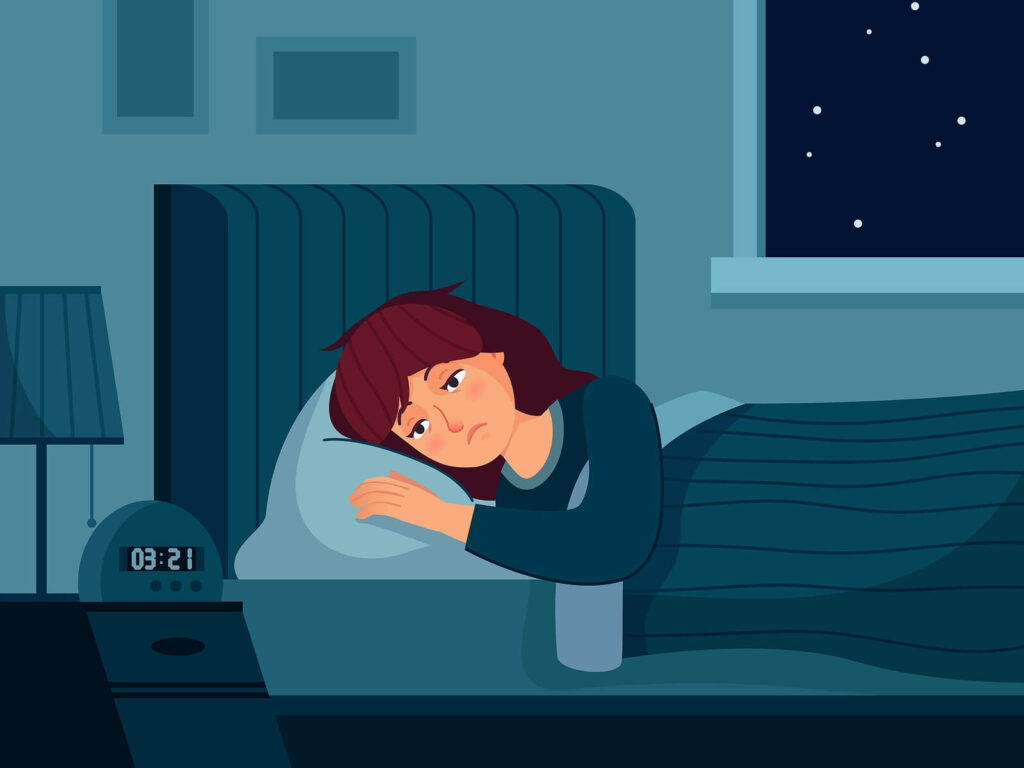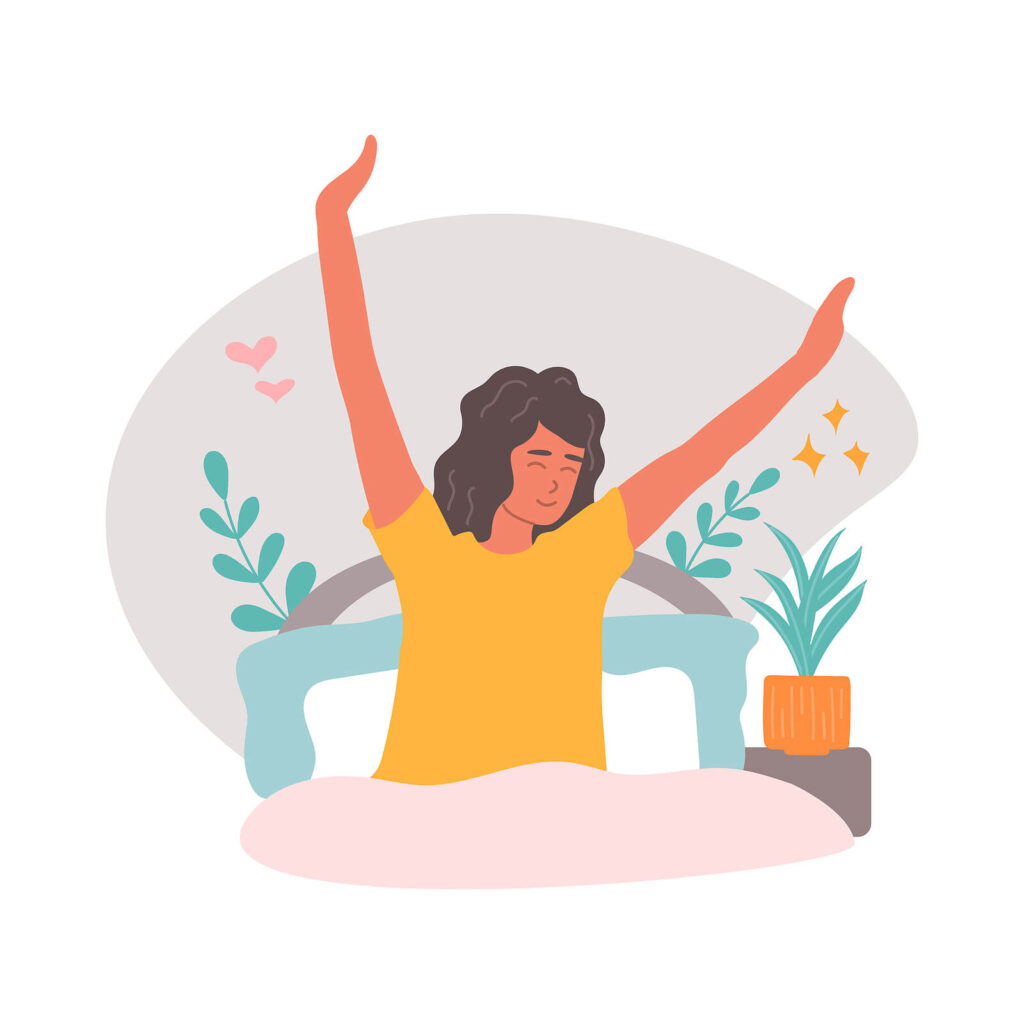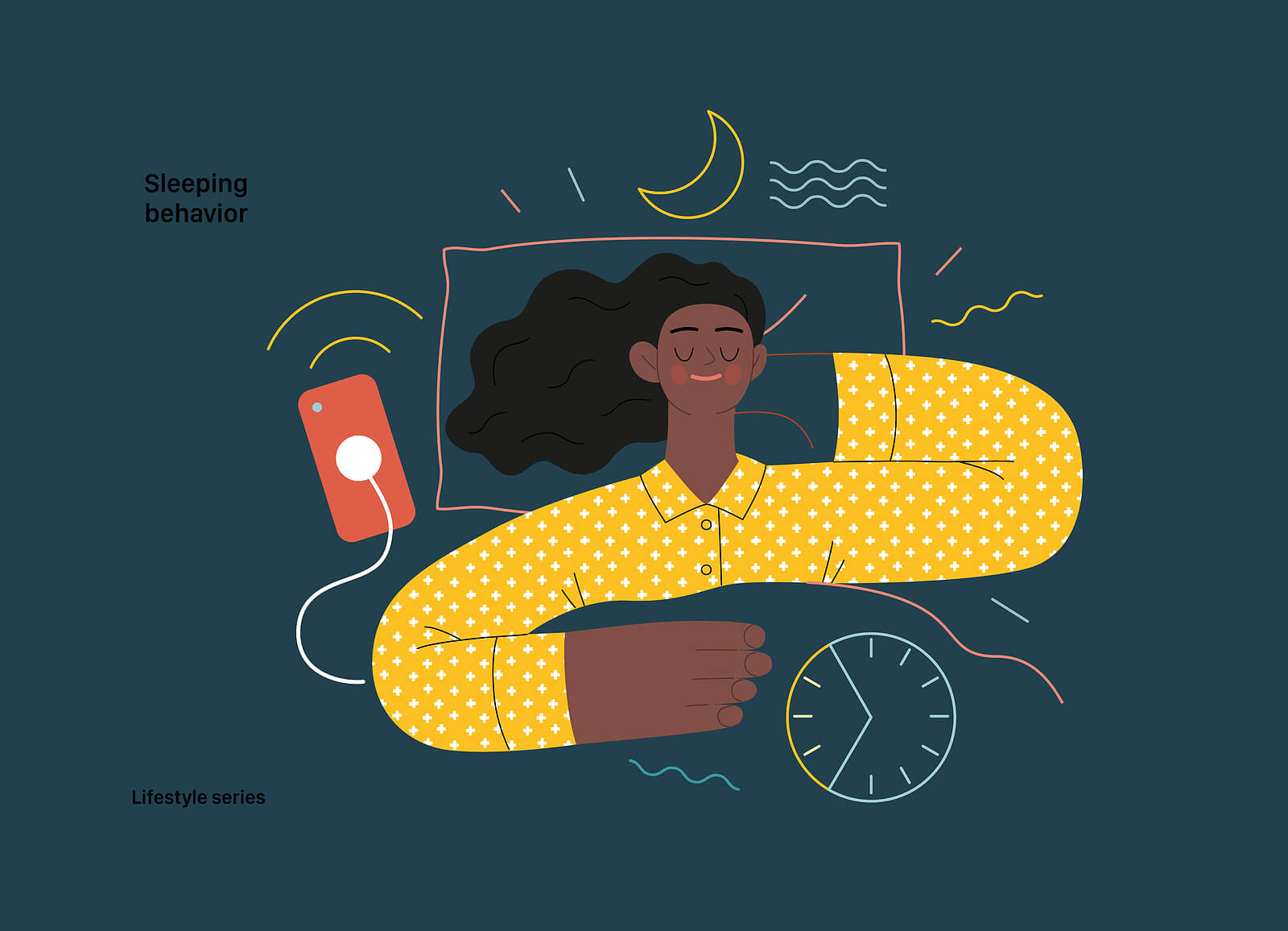Sleep hygiene refers to both your sleep environment and behavior. It’s the art of creating routines around healthy habits and avoiding things that can interfere with restful sleep. By mastering sleep hygiene, you can set yourself up for better nightly sleep and wake up feeling well-rested.

Why Does Sleep Hygiene Matter?
Quality sleep is essential for physical and mental health, productivity, and overall well-being. Whether you’re a child or an older adult, everyone benefits from better sleep. Forming good habits is crucial for maintaining health, and sleep hygiene plays a key role in achieving that goal.
Signs of Poor Sleep Hygiene
Here are some signs that your sleep hygiene might need improvement:
- Difficulty Falling Asleep: If you struggle to fall asleep, it could be due to poor sleep hygiene.
- Frequent Sleep Disturbances: Waking up often during the night disrupts your sleep quality.
- Daytime Sleepiness: Feeling tired during the day may indicate poor sleep hygiene.
- Inconsistent Sleep Patterns: Lack of consistency in sleep quantity or quality can also be a symptom.
How to Practice Good Sleep Hygiene

- Set a Strict Sleep Schedule:
- Go to bed and wake up at the same time every day, even on weekends.
- Consistency reinforces your body’s internal clock.
- Create a Bedtime Routine:
- Wind down before bed with calming activities like reading or gentle stretching.
- Avoid stimulating activities (e.g., intense exercise or work) close to bedtime.
- Optimize Your Bedroom:
- Make your sleep environment conducive to rest:
- Keep the room dark, quiet, and cool.
- Invest in a comfortable mattress and pillows.
- Remove electronic devices that emit blue light.
- Make your sleep environment conducive to rest:
- Avoid Stimulants Before Bed:
- Limit caffeine, nicotine, and alcohol intake at least 3 to 4 hours before bedtime.
- These substances can interfere with sleep quality.
- Get Regular Exercise:
- Engage in physical activity during the day.
- Exercise promotes better sleep, but avoid vigorous workouts close to bedtime.
- Watch Your Diet:
- Avoid heavy meals right before bed.
- Opt for light snacks if you’re hungry.
- Limit Naps:
- Short daytime naps (20–30 minutes) can be refreshing.
- Avoid long naps that disrupt nighttime sleep.
- Manage Stress:
- Practice relaxation techniques like deep breathing or meditation.
- A calm mind promotes better sleep.
Remember, sleep hygiene alone won’t cure all sleep problems. If you continue to experience sleep issues, consult a doctor. They can provide personalized advice and address any underlying concerns.
In summary, paying attention to sleep hygiene is one of the most straightforward ways to improve your sleep quality. By forming positive habits and optimizing your sleep environment, you’ll be on the path to better rest and overall health.
When Sleep Challenges Are Tied to Stress, Anxiety, or Mental Health
Sometimes, poor sleep hygiene isn’t the only issue. If you find that anxiety, chronic stress, trauma, or racing thoughts are making it hard to fall or stay asleep, it might be time to look a little deeper. At Kind Mind Psychology, we understand how closely mental health and sleep are connected.

Our team of therapists offers compassionate, evidence-based support to help you manage the emotional and psychological factors that can disrupt your rest. Whether you’re experiencing anxiety, burnout, ADHD, or past trauma, we’re here to help you get to the root of the problem and find sustainable strategies for better sleep and overall well-being.
Ready to Take Your Sleep More Seriously?
If you’re struggling with poor sleep, you’re not alone—and you don’t have to figure it out by yourself. At Kind Mind Psychology, we help individuals uncover the root of their sleep issues. Our therapists offer personalized support to help you build better habits and get the rest you need to feel your best.
- Reach out to us today.
- Learn more about the services we offer.
- Discover how therapy can support better sleep and overall well-being!
Comprehensive Therapy Services in New York and North Carolina
In addition to ADHD therapy in Charlotte, NC, Kind Mind Psychology offers a range of supportive services tailored to your unique needs. We provide LGBTQ+ affirming therapy, offering a safe space to explore and embrace your identity. Our couples therapy and sex therapy help partners strengthen their relationships and foster deeper connections. If you’re navigating the effects of past trauma, our trauma treatment services provide a compassionate, evidence-based approach to healing. Whether you’re seeking CBT, DBT, or online therapy, our team is here to support your growth and well-being every step of the way.

